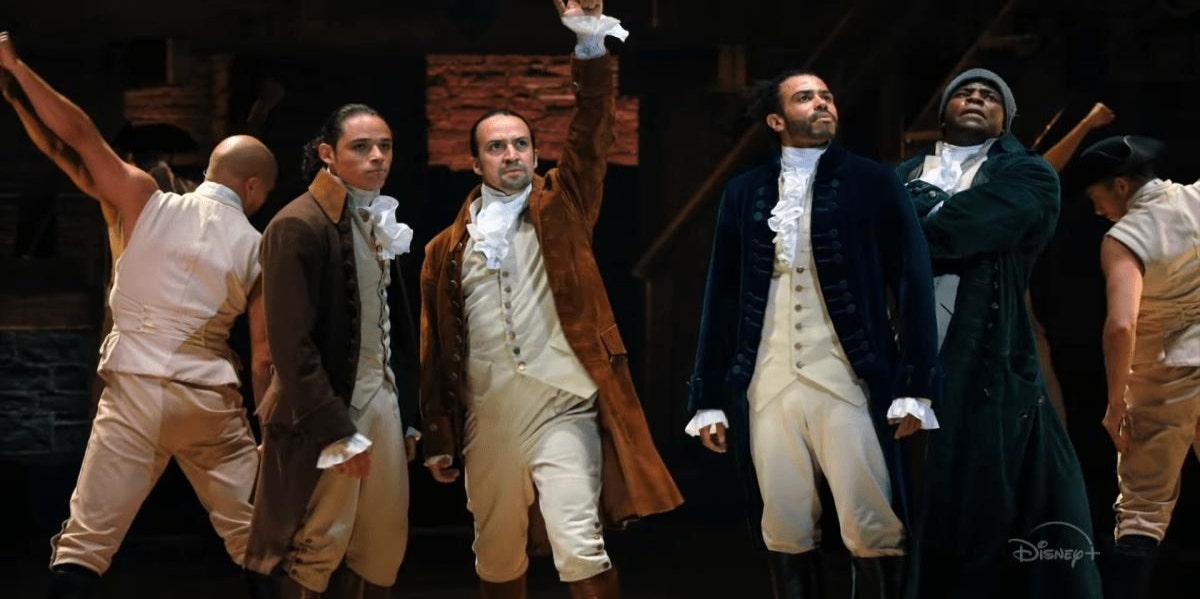Takeaways From ‘Hamilton’ On Resilience & Fortitude
Alexander Hamilton often found he was at odds with other founding fathers.
 Photo: IMDB
Photo: IMDB If you haven't seen the hit Broadway show Hamilton, you're missing a great opportunity to understand the mindset of America's Founding Fathers.
The United States was built upon people who had different perspectives, but came together for a common cause. They set aside their differences using the virtues of resilience and fortitude to achieve a goal.
Pain brings change in history and in our lives.
The American colonies felt the oppression of a tyrannical ruler who threatened their way of life, so they sought to make a change.
The intransigence of a despot imposing his will during the time of the American Revolution superseded other egregious behavior, like slavery and the treatment of women.
These issues took a backseat to economic needs and rights, such as free speech, the right to assembly, religion, and other freedoms we may take for granted today.
The play Hamilton is really an American opera with all the drama and intrigue of a Shakespeare classic. It exposes the human condition and the irony that violating some norms proves to be successful for some, while is it the undoing of others.
The resolve by Founding Fathers like Alexander Hamilton to create a better society by being defiant to social injustice is offset by their acceptance of other moral injustices.
Resilience in the face of personal transgressions.
In the case of Hamilton, the injustice of infidelity essentially ended his political ambitions, but did not quell his desire to help create a government for the people by the people.
The resilience he demonstrated in the face of personal disgrace to build a new country with high ideals was stronger than any humiliation he suffered. It was his remorse for his actions that renewed him and gave him the strength to continue his work.
Hamilton lacked discretion in his words and actions because of his passion for the values he felt were important. However, he was not the best politician, and he created powerful enemies who ultimately used his strength of being outspoken to bring him down.
Hamilton paid the price for his ethics with his life.
His friend and sometime enemy, Aaron Burr, took great offense to his brazen honesty and perceived betrayal of him. Burr challenged Hamilton to a fatal duel for choosing Thomas Jefferson to become President of the United States.
Hamilton shot his gun in the air while Burr shot straight into Hamilton!
Aaron Burr won the duel, but lost his prestige and paid for it for the rest of his life. He served as Vice President, but was never able to achieve the greatness he sought.
Alexander Hamilton had the courage and fortitude to stand up to a friend and choose a personal opponent, Thomas Jefferson, to become the third president over him because he respected his ideals.
Hamilton did not respect Burr who believed, “Talk less and listen more." He felt he did not have passion with his beliefs.
This type of courage was not politically correct from one perspective, but it was the right thing to do in the mind of Hamilton.
Hamilton’s principles and ethics changed history.
The lessons learned from the life of Alexander Hamilton will be left up to the observer, because they depend upon personal preferences.
On one hand, it is admirable for imperfect people to try to create a better place for future generations and for themselves at the time.
On the other hand, it is difficult to defend those who have violated their morals and were willing to ignore the rights of others to achieve those goals.
Alexander Hamilton is remembered as a founding father of the United States. He was an immigrant who rose in society from humble beginnings by virtue of his talent and intellect.
The work he did was historic and assisted in setting the stage for others who gained their rights after many years of trial. He was ahead of his time in many areas, but remained a flawed individual.
The play does not exonerate the evil of slavery nor does it condone infidelity. It portrays the people who fought for a common cause by deferring their conscious for what they felt was a higher ideal.
The founding fathers, like Hamilton, displayed uncommon courage, resilience, and fortitude to create a great nation. Their genius created a platform for mankind to move forward.
They took a step forward in many areas, but allowed some injustices to remain for a while longer.
It took almost 100 years for slavery to end, and women were not allowed to vote until the 1920s. Infidelity remains an ongoing issue.
Breaking rules to create a better future.
The men of the American Revolution broke a lot of rules to create a set of new ones in the hope for a better life for the future. It is taking time, but it appears to be working.
Hamilton told an old story in a new way, updating the essence of the American Revolution with a minority-majority cast, giving it a special irony.
The cast represents some fulfillment of the American Dream which is equality and justice for all. It remains a work in progress.
Founding Fathers like Hamilton had the right ideals, but did not always practice them to their fullest meaning.
This play demonstrates the ideals of the American experiment, though it has not been totally realized.
The play spurs debate and pause as to whether Americans today have the same resolve of our founding fathers to continue seeking the equality and justice for all that they risked their lives creating.
John Cappello is a natural psychic-medium who has been in practice for over 25 years.
